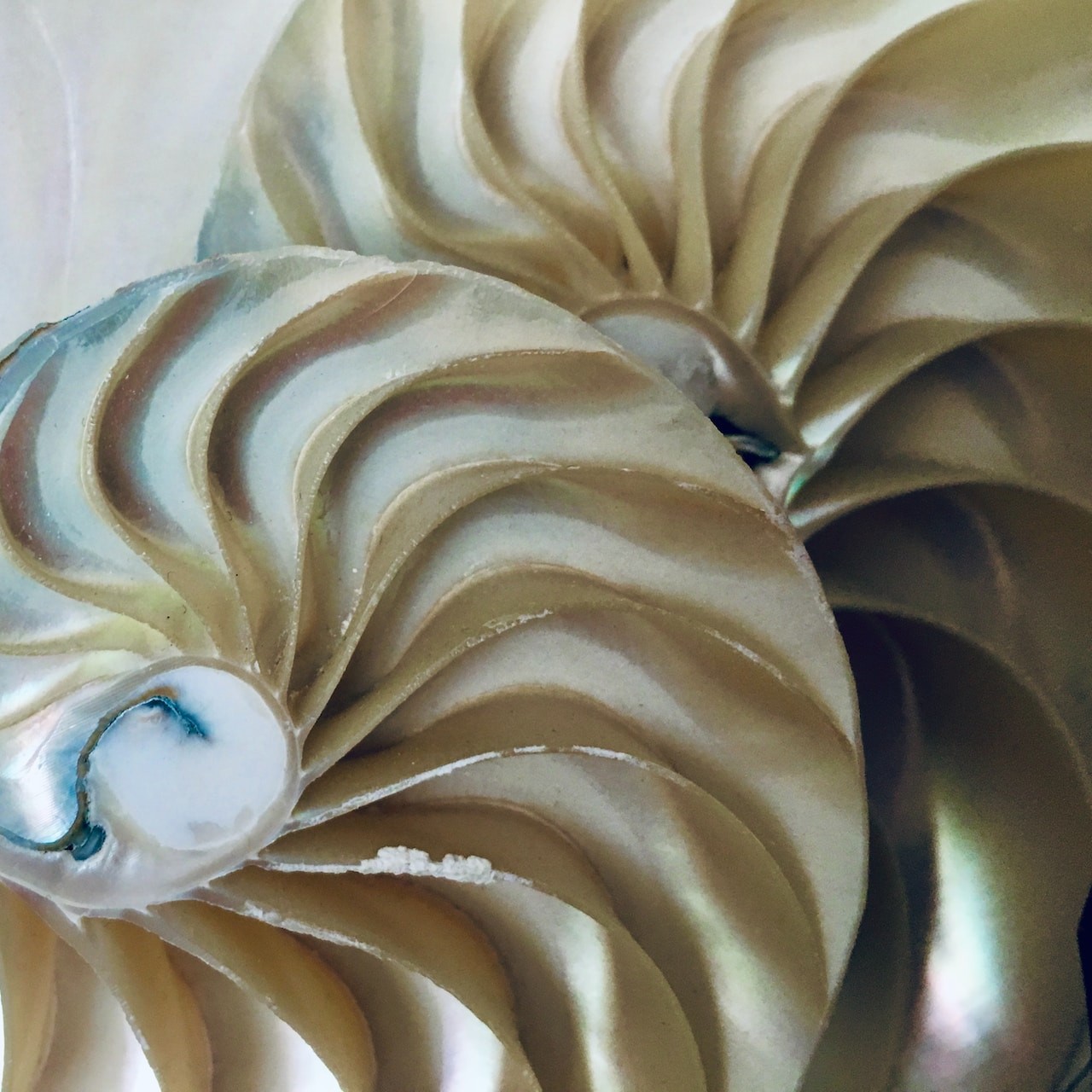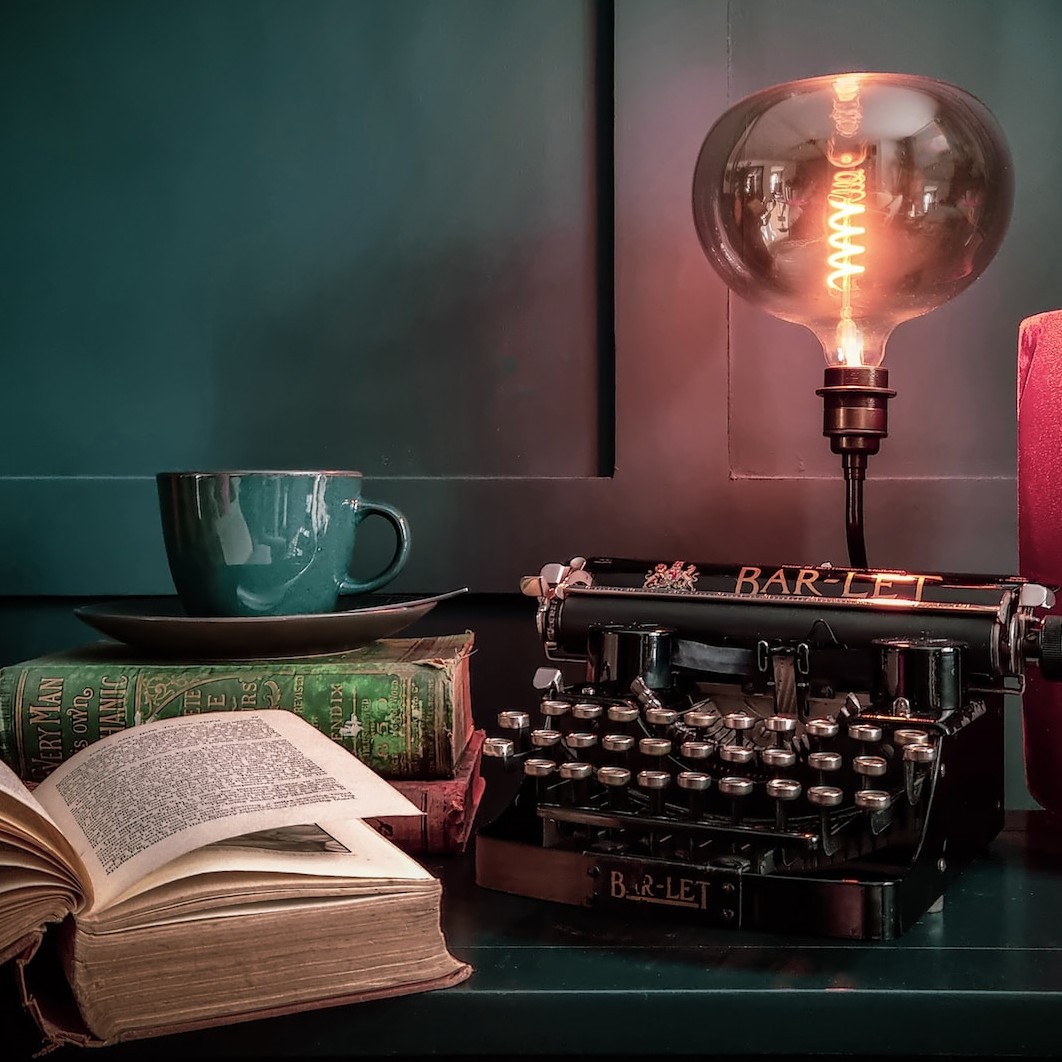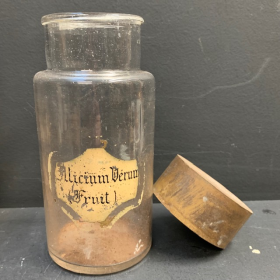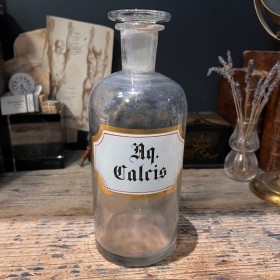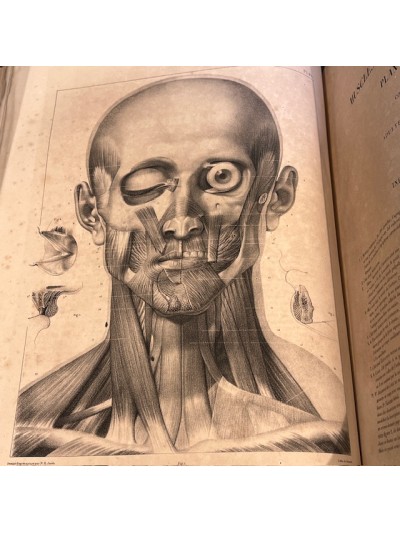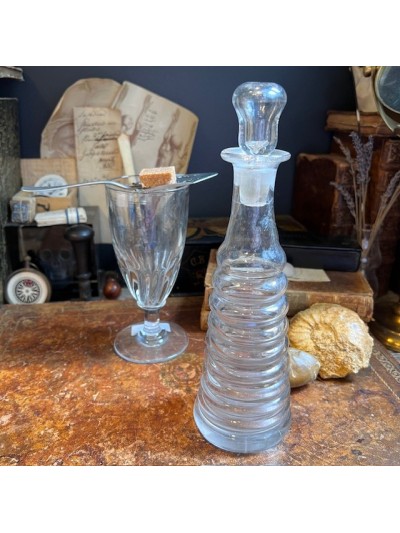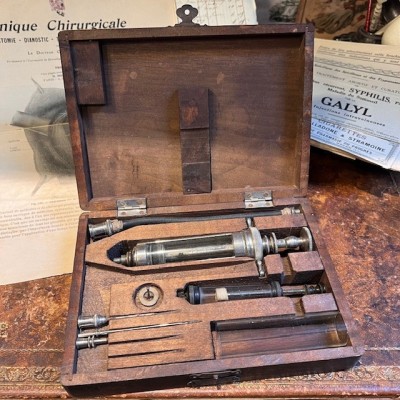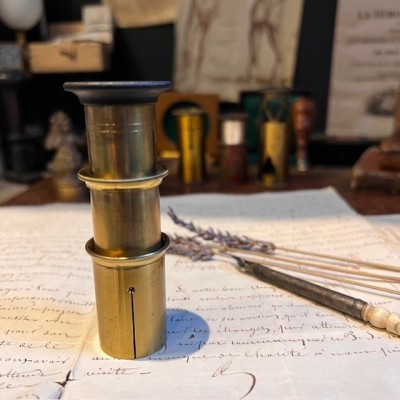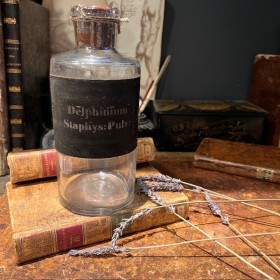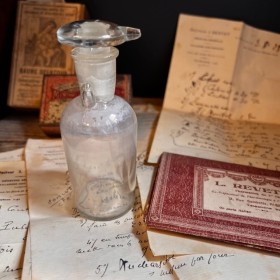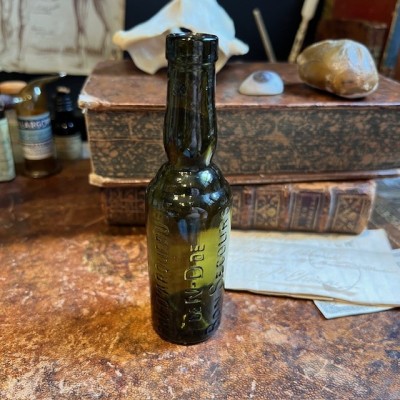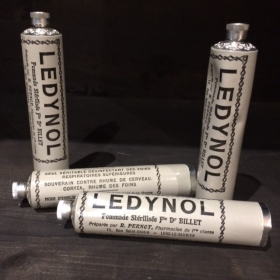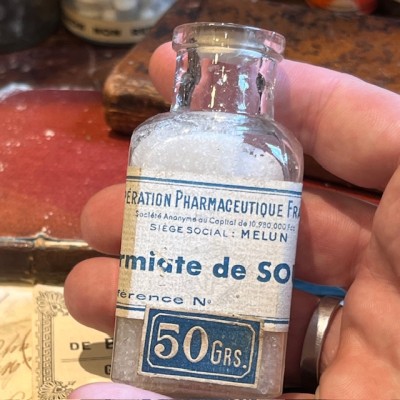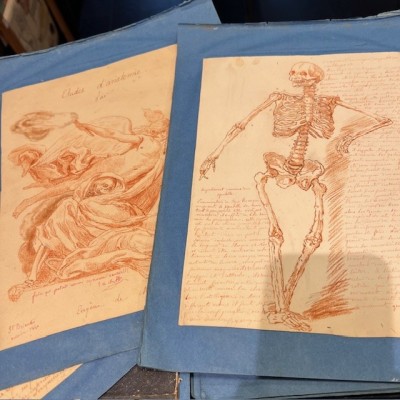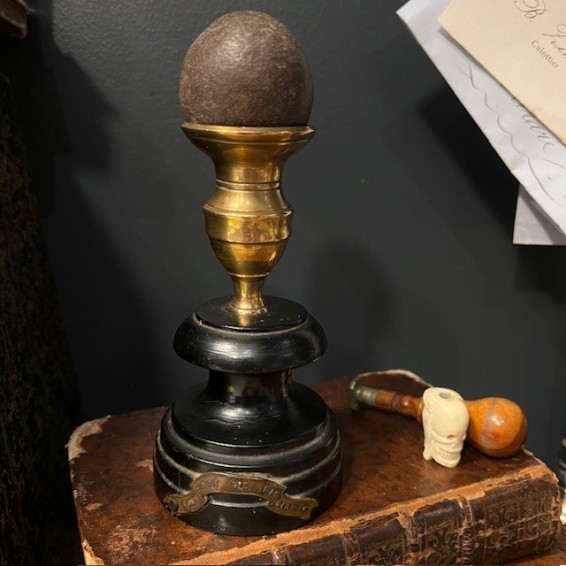

Antique bezoar - Antipoison - Antidote
Antique bezoar - Antipoison - Antidote
Once sold by the apothecary, bezoar, also known as gallstone, was reputed to have the same anti-poison properties as the legendary unicorn's horn, hence its excessively high price, also due to its great rarity.
An important piece in a cabinet of curiosities
Sold alone - Without stand, sold separately
Description
Antique Bezoar
Bezoar is a Persian word that protects against poison. According to Arab tradition, this stone was the product of the tears of a deer-goat.
In reality, it is a foreign body, a calcareous concretion resembling an extremely light stone that is most often found in the stomachs of ruminant animals and cannot be digested. An amalgam of fibres, plant debris and licking hairs bound together by resin ingested at the same time as conifer bark. Humans can also sometimes get it.
Once considered a universal antidote against venoms and poisons as early as the 15th century, it was also used as a decorative object by curiosity collectors in the 17th and 18th centuries.
Once sold by apothecaries, bezoars, also known as gallstones, were reputed to have the same anti-poison properties as the legendary unicorn's horn, which explains their extremely high price, also due to their great rarity. Legend has it that a Moorish king of Andalusia gave a doctor a sumptuous palace in Cordoba in exchange for a single bezoar.
In the event of poisoning, the bezoar was grated and powdered in wine to be swallowed.
Also effective against melancholy, the great princely families of Europe, notably the Habsburgs, who were prone to melancholy, collected them, transforming them into objets d'art, mounted on pedestals of gold and jewels.
Bezoars were important objects in cabinets of curiosity and in natural-history collections.
Simply possessing it warded off bad luck, and even the smallest stones could be found mounted in rings or pendants.
Provenance: Former collection. Origin: West Africa, circa 1950, from a return trip.
Dimensions: This is a not entirely round ball measuring approximately 4.5x4cm
The Bezoar is sold alone
You can also buy the base seen in the photos by typing bézoard in the search box

